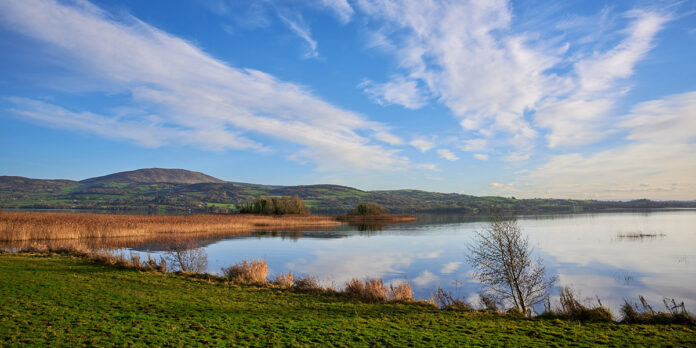The government’s approval of a controversial €6 billion plan to abstract 330 million litres of water per day from Lough Derg to service Dublin, the Midlands and the East of the country will cost every household in the country €3,000, a local opponent has claimed.
Emma Kennedy of the River Shannon Protection Alliance is totally opposed to the construction of this major water supply project.
Ms Kennedy, who is the author of the “Kennedy Analysis” examining the new controversial pipeline said all the reports produced by Uisce Éireann and Dublin City Council contained a “litany of errors”.
“The latest government approval is based on a secret document that was never published without any public scrutiny,” she said.
Back in 2018, Ms Kennedy recalled the River Shannon Protection Alliance participated in what was supposed to be an independent review of public documents, which was “halted for no reason” without the publication of any report.
“The Cabinet and the Government have been sold a pup. The new River Shannon pipeline can not fix Dublin’s water problems, the only solution is replacing decrepit old pipes,” she said.
“Almost 99% of the water source for Dublin comes from the most vulnerable water source, which is rivers. This will become 100% when they supplement this with the Shannon source when they add the River Shannon source.
“This is morally reprehensible and is a disgusting waste of taxpayers’ money for a nonesenical solution that will not fix the problem.
She pointed out water from rivers is vulnerable to contamination from THMS and cryptosporidium and the water that is being proposed to be taken from Lough Derg is the dirtiest water that can be abstracted because it is taken from the very end after the river has passed sewerage treatment plants and industrialised areas.
She claimed there will be “buyer’s remorse” when the project costs billions of Euro akin to the “National Children’s Hospital on steroids”.
Following an assessment by HR Wallingford, she recalled costs and contingencies for the scheme have been developed and scheme estimates range from €3.3 billion to €10.4 billion, with a management base cost of €4.6 billion.
She recalled this project was supposed to cost €650 million is now costing multiple of this figure before it goes to An Bord Pleanála.
The Government has received Cabinet approval for one of the largest infrastructure projects in the history of the State, which it predicted would ensure sustainable water supplies for half of the population up to 2050 and beyond.
According to a Government statement, the delivery of the Water Supply Project, Eastern and Midlands Region is critical to sustainable economic growth, enabling housing delivery and attracting investment to support Ireland’s growing population for the next 30 years and beyond.
This project, which has now got the green light to proceed to An Bord Pleanála, has a preliminary project cost estimate of €4.58 billion to €5.96 billion, which has been developed in accordance with the principles set out in the Infrastructure Guidelines by international engineering experts Jacobs and verified by an Expert Review Panel (ERP).
In addition, a Cost Benefit Analysis was developed by leading experts EY.
Based on a cost estimate of €4.58 billion, cost benefit analysis of the project demonstrates that it delivers €12.25 of benefits for every €1 of costs and it therefore represents a positive investment for the State, according to the Government.
The Water Supply Project Eastern and Midlands Region proposes to abstract a maximum of 2% of the average flow of the River Shannon at Parteen Basin downstream of Lough Derg. Treated water will then be piped 170km through counties Tipperary, Offaly and Kildare to a termination point reservoir at Peamount in County Dublin, connecting into the Greater Dublin network. It is expected construction will take four to five years.
Uisce Éireann CEO Niall Gleeson said the Water Supply Project is critical for the future of the country.
By delivering a secure, climate-proof supply of water for up to 50% of the State’s population it will facilitate increased demand for housing, enable sustainable economic growth and support competitiveness across the region.
East Clare correspondent, Dan Danaher is a journalism graduate of Rathmines and UL. He has won numerous awards for special investigations on health, justice, environment, and reports on news, agriculture, disability, mental health and community.


